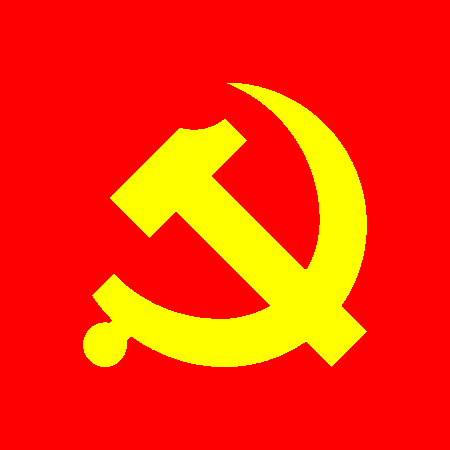cross-posted from: https://lemmy.dbzer0.com/post/34730043
For instance I know some lawyers and insurance CEOs who built the company themselves and run an ethical business model but because of innovation have made a ton of money. One lawyer has made a name for himself only defending those who have been hurt my big corporations and their life is ruined. The other made an insurance model that helps these hurt people invest their court winnings into annuities to guarantee they’re financially taken care of for life. These are not billionaires but both companies have won for their clients/work with hundreds of millions if not billions.
How can one clearly define someone like Musk or Bezos as bourgeois whereas these hard working individuals who came from nothing and build a huge business actually from nothing and help people?
Hoping for a non-black and white answer. My local MLM group declares everyone evil who isn’t their exact ideology. It doesn’t make sense to apply this thinking when someone whose become rich through helping people isn’t the same as someone whose has taken advantage of people for generations.
Edit: getting downvoted to hell when I am asking a question sure isn’t welcoming.
Marxism is not about moral value judgements of individuals, but critique of overall systems. It does not matter to Marxists if Capitalist A expropriates 10 USD per laborer per hour and Capitalist B expropriates 11, what matters is that society need not be organized in such a fashion and to ask how we can work towards a more equitable society and uplift the working class.
The idea of “self-made Capitalists helping people” is a bit silly. The riches were made from exploitation, regardless of the intensity of the labor involved from the Capitalist in getting it off the ground. This is not “ethical Capitalism,” but again, such a question misframes Marxist analysis entirely. As an addendum, insurance is close to non-productive labor to begin with, making it generally something to be eliminated outright via expansion of social services.
As @[email protected] said, distinguishing petite and haute bourgeoisie is helpful to understand class distinctions and thus interests and behaviors more clearly, but again, the purpose isn’t moral judgement. The purpose is to understand the world so we can understand how to change it and make it better for the working class.
Do you not think the lawyer helping the hurt win against big corporations is not sill though? And if they win them 55 mil for example they deserve a portion for their work?
The particular insurance I’m mentioning is annuities. Insuring one has steady income for life. I do see your point that even this type of insurance would not have to exist in a communist country since one would have a fair wage.
I guess I am thinking at too small a level! Thanks for your insight and sorry I’m responding via mobile so my thoughts are less complete.
You’re still framing Marxism as a moral judgement on which kinds of labor are acceptable within the boundaries of Capitalism, to which I ask, what does this moral judgement accomplish? I can personally think it’s cool to protect the little people against big corporations, but that’s not in the realm of Marxism. Marxism is a tool, a tool for understanding the world around us and how we can best change it. Moralism and ethics are for courts and legal systems to hash out, Marxism is for liberating the working class.
It can be fun to watch the likes of Bezos and Musk clown on themselves and to watch them stumble and fall, and we don’t need Marxism to tell us that that’s okay. They are terrible people, and we know that with or without Marxism. Marxism isn’t a cult of poverty either, it generally isn’t better to be poor in Socialism than rich in Capitalism as a proletarian (not always true, though, as Capitalism continues to decay and crumble the safety of a Socialist system can outweigh having better access to commodities in Imperialist countries), and to reject wealth does not make one “noble.” Dialectical Materialism is a toolbox and a magnifying glass, not a pair of legal scales to weigh one person’s sins against the other.
The best answer to your question is to reject it, essentially.
Thanks for clearly reframing my question Cowbee :) not just saying this doesn’t matter for Marxist thought but why.
No problem! Again, I don’t want to absolve Capitalists from terrible behavior, just want to reframe your thinking about Marxism in general.
Well you succeeded :)
Firstly I would drop the moral framing[1]. It’s a fool’s errand to try to distinguish good, moral bourgeoisie from bad, immoral bourgeoisie[2].
The first division Marxists generally make within the bourgeoisie is between petit bourgeoisie and haute bourgeoisie. That division somewhat correlates with what you are describing, but really mostly doesn’t correlate.
The idea that the “hard working” “self-made” “job creators” are moral scions should just be dropped down a mine shaft.
Thanks for the comment and links. Will read them later tonight.
Based on what you said, how do you divide bourgeoisie and proletariat then? Those who control the means of production and those who profit is extracted right? Would the example where no one is extracting and all workers are paid well still be proletariat? I’m sure it can’t be as silly as proletariat + paid well = bourgeoisie. Both examples I provided come from dirt poor families.
 0·7 days ago
0·7 days agoReposting @[email protected]s comment so you can see it:
Proletariat works for money and does not profit from the labor of others. Bourgeoisie does not work for money and extracts profit from the labor of others. Petite bourgeoisie work for money and extracts profit from the labor of others.
That’s very clearly define. Thanks for linking that!
Btw why didn’t I see that? Is my instance not federated with theirs?
Lemmy.dbzer0.com is defederated with Lemmygrad.ml.
Huh, I didn’t know that.



